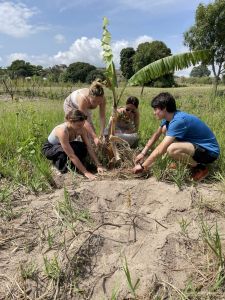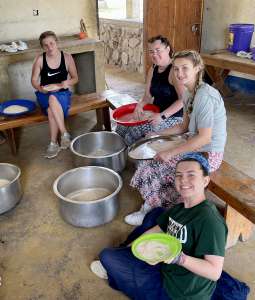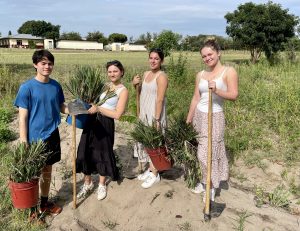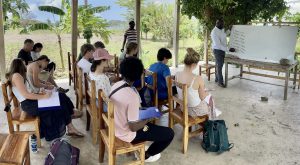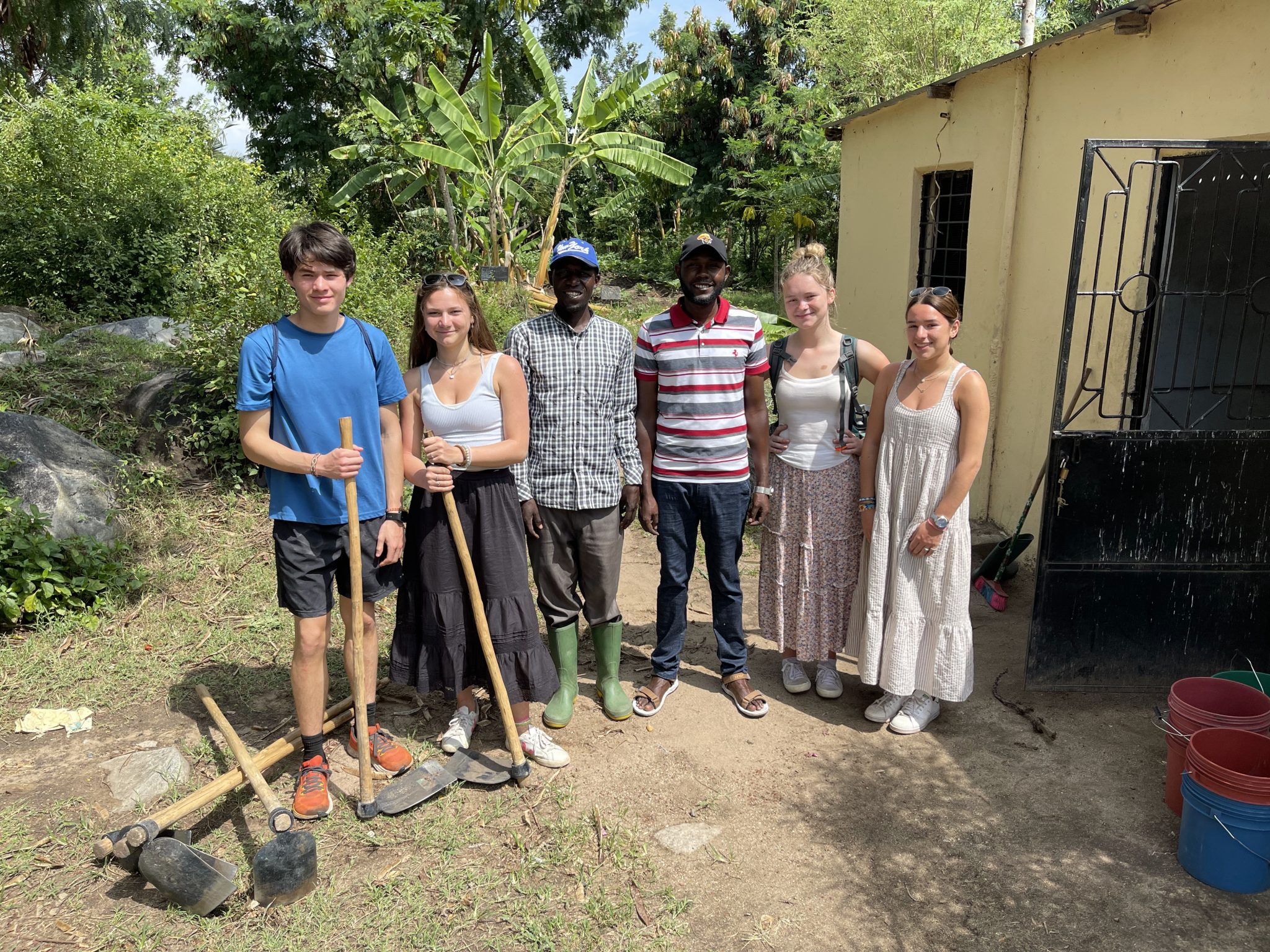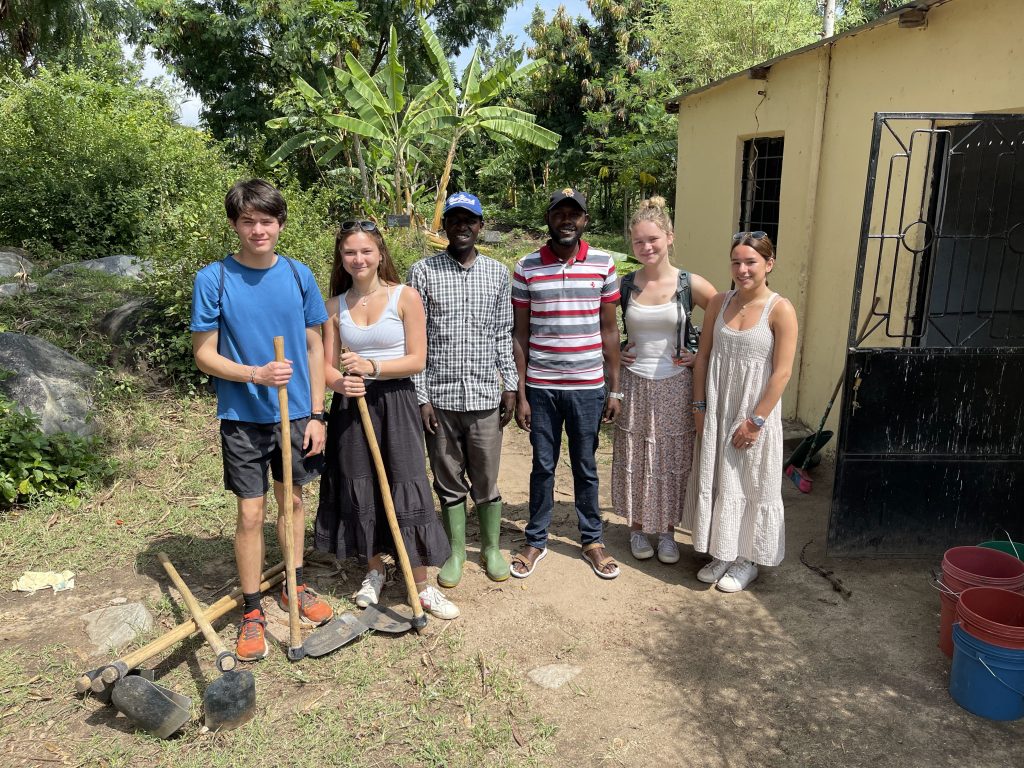Robbie Hua ’24, recounts the days activities and the lessons learned.
“When life gives you lemongrass, make lemongrass tea!” – Ms. Parker, March, 2023.
For a handful of us at Mainsprings we started off the day with a sunrise run. As always, students and adults passed, waved and even ran with us as the sun’s beams of orange and red painted Lake Victoria, Today, three events stood out to me: our work on the farm, our talk with Lazaro, and meeting with the officials of Mainsprings, the organization that runs the girl’s orphanage, school, and the garden.
After breakfast, we started with rotations. Our group of five including Mr. Pitcher worked with Edward, a permaculture specialist, in the campus garden by digging and planting lemongrass around banana trees, and weeding areas that would soon be used for carrots. Work in Mainsprings’ agricultural fields are guided by three ethical principles of permaculture: Earth care, people care, and fair share. Over the past few days, we learned about the benefits of permanent agriculture in the communities surrounding Kitongo. These progressive measures provide work, a sustainable supply of food, and a source of fresh, nutritious food. I talked to Edward about my summer working on an organic farm back in my hometown of Farmington, Connecticut. Interestingly, my two farming experiences shared so many similarities, even though they’re rooted in dramatically different geographical locations, ecosystems and cultures.
Before lunch, Lazaro, the head of permaculture at Mainsprings and also a member of a Maasai community, shared his views about the Tanzanian government’s efforts to relocate Maasai out of Ngorongoro Conservation Area and into new areas in the region surrounding the Serengeti. He shared the ways the Tanzanian and international media are covering this controversy, how forced displacement from their homes have affected his friends and family, and what activists and Maasai communities are doing to resist this policy. What I found most striking was the Tanzanian government’s restrictions on herding on Maasai land in Ngorongoro, and their reduction in hospital facilities and schools. Given how important agriculture and basic infrastructure are for many rural communities, these changes are designed to make the Maasai people vulnerable and serve to pressure these communities to relocate.
The final event for the day was our “working” dinner and discussion with the CEO and facility directors of the program at Mainsprings. We talked about the organization’s future and its aspirations. We asked important questions such as the organization’s next steps, how alumni fare after attending the Mainspring’s school, and how the institution works toward its outreach and fund-raising goals. The directors stressed how the school and the organization’s efforts would impact the wider community, one of the ethics of permaculture–people care! They emphasized how permaculture and education would continue to be the two main goals of Mainsprings–an emphasis on quality over quantity. One design principle of permaculture that Lazaro shared with us is “observe and interact.” All these events from the day showed how local policies and goals can positively impact a community, and how holistic education about land and people is vital to the goal of impoverished rural communities becoming self-sustaining.
